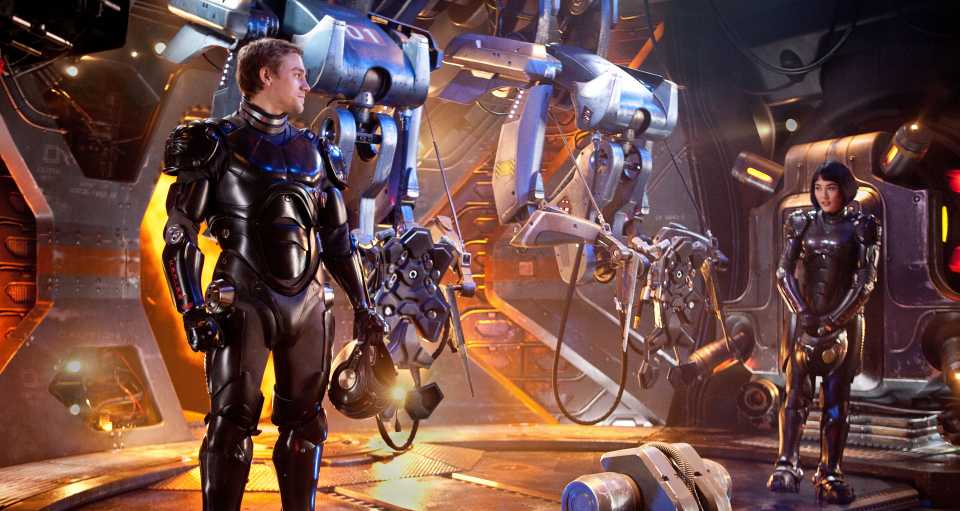Culture
Movie review: “Pacific Rim”

Pacific Rim
dir. Guillermo Del Toro
Release Date: Jul 12, 13
- 1
- 2
- 3
- 4
- 5
- 6
- 7
- 8
- 9
- 10
For all its blockbuster trappings, Pacific Rim will never be a megahit in the current blockbuster climate. That isn’t to say it isn’t a wonderful film, because by and large it is. It’s the kind of gleefully excessive entertainment that turns even its shortcomings or its hokiest moments into part of the fun. But this is a big-ticket action movie in the vein of the blockbusters of the 1980s and early 1990s, the main difference being that Guillermo Del Toro has the good fortune to be making films in a time where the money and technology finally exists to realize those movies in their ultimate form. But this is a movie that’s so deliciously geeky, so unabashedly childlike in its awe of itself that it’ll only find a portion of an audience now hooked on either oppressively dour action movies or banal festivals of CGI. And that’s a shame.
As a filmmaker, Del Toro has regularly favored throwbacks to the movies he grew up enjoying, and Pacific Rim is the realization of that mission statement. Set in the not-too-distant future, where kaiju (monsters) and Jaegers (colossal robots created by a united global political structure) do battle in big cities, Pacific Rim subscribes to the Roland Emmerich school of giving the audience just enough markers to identify with characters before going to town with the property destruction. (This likely isn’t accidental; the film’s third act recalls Independence Day rather heavily.) Whether that’s a good or bad thing is largely a matter of perspective; while it’d be rather easy to condemn the film for its admittedly thin characterizations, Pacific Rim isn’t in the same business as A Separation. This is a film where Raleigh (Charlie Hunnam) loses his brother in the film’s prologue during a battle, only to be recruited back as a Jaeger operator while working in construction. If you’re already giggling at the revival of this action trope (man suffers tragedy, retreats into the masculine solitude of hard labor), this is undoubtedly your kind of film.
Like many of the kaiju films Del Toro aims to emulate, there’s a tension between massive creatures of one kind or another destroying each other and everything around them and the science that brings them into being. For one, the Jaeger operators are wired into the system, but lest they overload the human brain, dual operators are required. This brings Raleigh together with Mako Mori (Rinko Kikuchi, pitch-perfect here), a bright young woman who has a scarring history with the kaiju that comes out during the “neural handshake” that connects the two operators’ brains. This leads to conflict with the delightfully monikered Stacker Pentecost, played by Idris Elba with just the right dose of self-awareness. And then there’s Dr. Newton Geiszler (Charlie Day), a kaiju obsessive convinced that he’s found a way to connect his brain to that of a kaiju the way the operators attach themselves to the Jaegers.
But, wisely, all of the above interpersonal conflicts are meted out in small doses so as not to take away from the primary appeal: giant robots and giant monsters sparring. It’s here that the wonder of Pacific Rim takes over. Del Toro is clearly having a blast within this universe, one where the monsters are genuinely terrifying and the robots have rocket-powered elbows for super punches. One where a man named Stacker Pentecost can deliver an epic speech about “cancelling the apocalypse” and Ron Perlman can show up as a shady kaiju appendage dealer without the film missing a beat. One where ironic detachment and stylish cool have absolutely no place, either within the film or in the audience watching. Pacific Rim is a movie outside of its time, and yet perfect for it, a reminder of the sort of fully immersive escape that the best popcorn movies offer. And, unlike so much of this year’s summer fare, and above all else, it’s just a hell of a lot of fun.